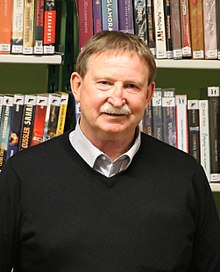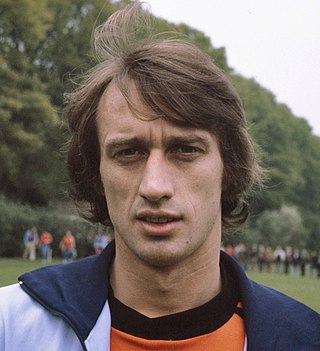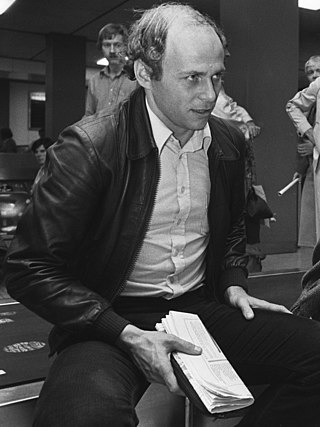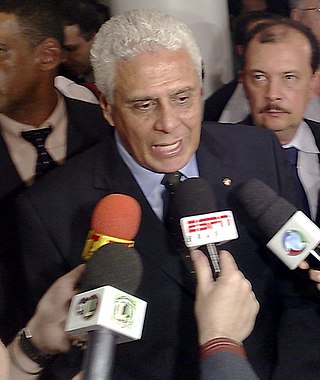 Szarmach in October 2017 | ||||||||||||||||||||||||||
| Personal information | ||||||||||||||||||||||||||
|---|---|---|---|---|---|---|---|---|---|---|---|---|---|---|---|---|---|---|---|---|---|---|---|---|---|---|
| Date of birth | 3 October 1950 | |||||||||||||||||||||||||
| Place of birth | Gdańsk, Poland | |||||||||||||||||||||||||
| Height | 1.78 m (5 ft 10 in) | |||||||||||||||||||||||||
| Position(s) | Striker | |||||||||||||||||||||||||
| Senior career* | ||||||||||||||||||||||||||
| Years | Team | Apps | (Gls) | |||||||||||||||||||||||
| 1967–1969 | Polonia Gdańsk | |||||||||||||||||||||||||
| 1969–1971 | Stoczniowiec Gdańsk | |||||||||||||||||||||||||
| 1969–1972 | Arka Gdynia | |||||||||||||||||||||||||
| 1972–1976 | Górnik Zabrze | 105 | (49) | |||||||||||||||||||||||
| 1976–1980 | Stal Mielec | 109 | (60) | |||||||||||||||||||||||
| 1980–1985 | Auxerre | 148 | (94) | |||||||||||||||||||||||
| 1985–1987 | En Avant Guingamp | 64 | (33) | |||||||||||||||||||||||
| 1987–1989 | Clermont Foot | 32 | (20) | |||||||||||||||||||||||
| International career | ||||||||||||||||||||||||||
| 1973–1982 | Poland | 61 | (32) | |||||||||||||||||||||||
| Managerial career | ||||||||||||||||||||||||||
| 1987–1989 | Clermont Foot | |||||||||||||||||||||||||
| 1989–1991 | Châteauroux | |||||||||||||||||||||||||
| 1991–1995 | Angoulême | |||||||||||||||||||||||||
| 1997–1998 | Zagłębie Lubin | |||||||||||||||||||||||||
| 1999–2001 | Aurillac | |||||||||||||||||||||||||
Medal record
| ||||||||||||||||||||||||||
| *Club domestic league appearances and goals | ||||||||||||||||||||||||||

Andrzej Szarmach (Polish pronunciation: [ˈandʐɛjˈʂarmax] ; born 3 October 1950) is a Polish former professional footballer who played as a striker.
Contents
Prior to the 1974 FIFA World Cup, he was virtually unknown. [1] He played in the Poland national team during its "golden age" in the 1970s. With Grzegorz Lato at his right, Robert Gadocha at his left, and Kazimierz Deyna in support, Szarmach profited from the absence of Włodzimierz Lubański to lead the Polish attack, the best at 1974 World Cup, with sixteen goals. While Lato finished first in the Cup in goals with seven, Szarmach, with five goals, also marked the competition with his imprint. He confirmed his status two years later at the 1976 Olympics in Montreal, winning the silver medal and the title of best player of the tournament, with nine goals.
Jowled and moustached, the Polish attacker had a Gallic quality and thus easily fit in at AJ Auxerre. He won the favour of Guy Roux and of the Burgundian public, by scoring 94 goals between 1980 and 1985. After a brief period at Guingamp and a total of 32 goals in 61 games with the Poland national team, [2] Szarmach began his career as a manager, in particular managing Clermont-Ferrand, then Châteauroux in the second division. [3]
- Scores and results list Poland's goal tally first, score column indicates score after each Szarmach goal.
| No. | Date | Venue | Opponent | Score | Result | Competition | Ref. |
|---|---|---|---|---|---|---|---|
| 1 | 10 August 1973 | Kezar Stadium, San Francisco, United States of America | 3–0 | 4–0 | Friendly | [4] | |
| 2 | 13 April 1974 | Stade Sylvio Cator, Port-au-Prince, Haiti | 1–2 | 1–2 | Friendly | [5] | |
| 3 | 15 April 1974 | Stade Sylvio Cator, Port-au-Prince, Haiti | 1–0 | 3–1 | Friendly | [6] | |
| 4 | 3–0 | ||||||
| 5 | 15 June 1974 | Neckarstadion, Stuttgart, Germany | 2–0 | 3–2 | 1974 FIFA World Cup | [7] | |
| 6 | 19 June 1974 | Olympiastadion, Munich, Germany | 3–0 | 7–0 | 1974 FIFA World Cup | [8] | |
| 7 | 5–0 | ||||||
| 8 | 6–0 | ||||||
| 9 | 23 June 1974 | Neckarstadion, Stuttgart, Germany | 1–0 | 2–1 | 1974 FIFA World Cup | [9] | |
| 10 | 1 September 1974 | Olympic Stadium, Helsinki, Finland | 1–1 | 2–1 | UEFA Euro 1976 qualifying | [10] | |
| 11 | 13 November 1974 | Letná Stadium, Prague, Czechoslovakia | 2–0 | 2–2 | Friendly | [11] | |
| 12 | 26 March 1975 | Stadion im. 22 lipca, Poznań, Poland | 2–0 | 7–0 | Friendly | [12] | |
| 13 | 4–0 | ||||||
| 14 | 24 June 1975 | Memorial Stadium, Seattle, United States of America | 3–0 | 4–0 | Friendly | [13] | |
| 15 | 6 July 1975 | Olympic Stadium, Montreal, Canada | 7–1 | 8–1 | Friendly | [14] | |
| 16 | 9 July 1975 | Varsity Stadium, Toronto, Canada | 2–0 | 4–1 | Friendly | [15] | |
| 17 | 3–0 | ||||||
| 18 | 10 September 1975 | Stadion Śląski, Chorzów, Poland | 3–0 | 4–1 | UEFA Euro 1976 qualifying | [16] | |
| 19 | 4–0 | ||||||
| 20 | 22 July 1976 | Olympic Stadium, Montreal, Canada | 1–1 | 3–2 | 1976 Summer Olympics | [17] | |
| 21 | 3–1 | ||||||
| 22 | 25 July 1976 | Olympic Stadium, Montreal, Canada | 1–0 | 5–0 | 1976 Summer Olympics | [18] | |
| 23 | 2–0 | ||||||
| 24 | 31 October 1976 | Stadion Dziesięciolecia, Warsaw, Poland | 2–0 | 5–0 | 1978 FIFA World Cup qualification | [19] | |
| 25 | 10 June 1977 | Estadio Nacional, Lima, Peru | 1-0 | 3-1 | Friendly | [20] | |
| 26 | 21 September 1977 | Stadion Śląski, Chorzów, Poland | 4–1 | 4–1 | 1978 FIFA World Cup qualification | [21] | |
| 27 | 22 March 1978 | Stade Municipal, Luxembourg City, Luxembourg | 2–0 | 3–1 | Friendly | [22] | |
| 28 | 3–0 | ||||||
| 29 | 18 June 1978 | Estadio Ciudad de Mendoza, Mendoza, Argentina | 1–0 | 1–0 | 1978 FIFA World Cup | [23] | |
| 30 | 19 April 1980 | Stadio Comunale, Turin, Italy | 2–2 | 2–2 | Friendly | [24] | |
| 31 | 10 October 1981 | Zentralstadion, Leipzig, Germany | 1–0 | 3–2 | 1982 FIFA World Cup qualification | [25] | |
| 32 | 10 July 1982 | Estadio José Rico Pérez, Alicante, Spain | 1–1 | 3–2 | 1982 FIFA World Cup | [26] |












